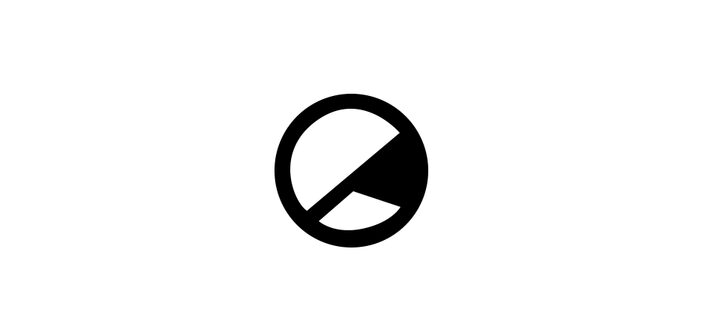Just as La Dispute took a lengthy amount of time developing their album Panorama before releasing it to their keen listeners – this article has also had hours poured into it to ensure it is at the most peak quality that the Edge has ever seen – at its full capacity for my large base of readers, namely myself and the editor (I treasure you). Some people may tell you the decision to release this article three months after the album was released was due to laziness, essays, dissertations and exams – but these are slanderous lies and these people should not be trusted. I pre-ordered the Vinyl bundle as to PROVE my dedication to this, this article is my magnum opus, and was totally not forgotten about and subsequently written in a passionate haze during a train journey back to my home town (which is the cover image of Crap Towns 2! A point of pride).
I’m quite a slow listener with music, it takes me a while to ‘get’ the album beyond the basic evaluations of “this is nice” or “this is a bad time”, or “oo ouch my ear hurt”, and Panorama was a weird time. While having elements which are quintessential La Dispute, it seems a more evolved and altered take on their own ideas and means of creating music. It is an amalgamation of all of the previous albums and EPs, instrumentally and thematically. After my 3rd listen I decided I damn well love this album a lot, but before I spend the rest of this article gushing about Panorama to no one but myself, I’ll get the bad points out of the way first. The mixing was not particularly to my liking, I said this in a previous article summing up the singles before the albums release, but now with the full picture painted I still stand by the criticism; as much as I enjoy the lovely instrumental development seen within the songs, I do miss having the vocals completely clear. I’m a poor girl with poor hearing and woe is me, but Dreyer’s lyrics are always bloody brilliant and it’s a shame the mixing interferes with the experience of the album, however, when we look at each of the components individually – oh damn its incredible. They obviously had a purpose for this mixing – but, as I just experienced through seeing them perform live in London a couple of days ago, the songs are better live where I can better hear the lyrics (which is aided by a sweaty crowd of very tall men belting them out at peak volume).
When looking at the overall style of this album and how it differs from the previous (I guess entry requirements for reading this article include listening to everything La Dispute has ever done because that’s the only analysis you’re going to get from me, kid), it seems that there is less dissonance between the instruments and lyrical intensity, at least when comparing to Rooms of The House. The aggressive vocals have aggressive instruments to match, and the same for softer lyrical songs, the only exception being ‘ANXIETY PANORAMA’ where the song shifts uncomfortably at times between styles of hard and soft without concern of matching intensity, in terms of pacing it is fast and erratic – while their first album, Somewhere at the Bottom of the River between Vega and Altar, had periods of covering similarly emotionally charged themes it didn’t contain the chaos that ‘ANXIETY PANORAMA’ does. But I feel this can be seen as a development for La Disputes style, as the instruments match the emotion felt in the vocals. In a general sense, the musical style of this album borrows and shifts together aspects of the previous albums, which allow for a more coherent and well-rounded approach that encompasses La Dispute’s past while allowing elements to be added representing their future, with even the lyrical style of quiet poetry-esque readings seen in some songs as representing their previous series of Here, Hear EPs. The introduction of a trumpet in ‘RHODONITE AND GRIEF’ really made me happy, it’s the little things and all that jazz.
After looking perhaps pointlessly at how the musical style matches the lyrical counterpart, I’ll look into the more interesting aspect of what the album is about. Much like the previous albums, Panorama exists as a narrative encompassing the themes of relationship decline, the passage of time, issues of mental health, and feelings of fear and anxiety related to the ones you love. Jordan once again tells a very realised tale via the lyrics, a narrative frame which has seemingly become stronger and more realised throughout their albums. The newest development is the focus on Jordan’s real experiences with his partner and her grief over the death of her grandmother through Alzheimer’s. The album shows a joining and development of the themes of Wildlife and Rooms of The House – both albums spun together in a very personal tale of grief and the stress on the self and their relationships after the death of a loved one.
Jordan is the centre narrator of the album, mainly questioning his role in aiding his partner and the extent that he goes to as to try to help the woman he loves. The relationship undergoes severe strain as they both go through the motions of grief and hopelessness in the face of existential horror that the death of the grandmother has instilled into them. They react in different ways, much like in Rooms of The House, the partner wants to drive through the roads away from their lives, away from the existence which constantly makes her doubt her place in life, while Jordan reacts by wanting to carry on the way they are, to fix their coexistence through rebuilding and maintaining their life, while anxiously blaming himself for not being able to help her and fix everything for the woman he loves. The relationship exists within uncertainty of what the other needs nor what the self wants, which causes extreme anxiety and the justification of pain. His own pains are minimised, and hers are static, which allows for their existence to become halted, and decay before their eyes, without the will to stop it.
The 5th listen of the album was on a bus back to my Southampton house after spending 10 hours socialising with girls I hadn’t seen for 4 years, and after 5-hour train journey running on 4 hours of sleep, and this is an experience I do not recommend – or do if you want to experience prolonged existential dread.
Especially as I listened to ‘IN NORTHERN MICHIGAN’ I felt all my timelines collapsing into one and experienced them all at once, I was myself, I was the characters within the album plus those previous, and so much more. It really hits you when the questioning of ones self and ones place in life reaches a peak in the songs and shivers stem from your back as if you’re assimilating to the music. Every song in this album really appeal to the fear of not being enough for your partner and not being able to help them, no matter how much time you spend trying – the album exists in confusion and unsure of the solution to the problems posed within this relationship – how long do you try before realising that there is no hope? what is the best course of action?
When it comes to the ends of their previous albums, there is a lack of conclusion: Somewhere at the Bottom ends with a loop back to the start of the album, creating a cycle of despair, anger, and grief at the end of a relationship and an inability to move on, while Wildlife concludes with an over-analysis of the self and the identifications of ones problems without any real hope of solution, the narrator ends with a longing to his missing partner and is still as unsure as he was at the beginning of the album about his strength as a human. Lastly Rooms of The House ends with a highlighting of existential dread which still messes me up whenever I listen to it.
Somewhat bizarrely for La Dispute, Panorama ends on a near positive note, there’s a definite aura of improvement and resolution. The last song ‘YOU ASCENDANT’ focuses on Jordan viewing his partner rise from grief and from the existential terror that has kept her subdued for so long – “All things to dust but you keep on” – his partner has grown more resilient to her pain, denies her anxiety, denies the permanence of death and denies the temporality of life.
The last song can be seen as as prequel to their previous single ‘Thirteen’, which is concerned about the oneness and unconditional love felt within relationships, a love which is maintained throughout different lifetimes. ‘Thirteen’ sees comfort in each others existence, and maps on the continuity of love throughout death, they belong to each other and there’s a sense of calmness and tranquility in this knowledge. Panorama, as a prelude to this single, ends with the their relationship triumphing over grief, and through that they both recognise the permanence of their love – they will have each other in every lifetime. Jordan watches his love conquer the loss of her grandmother and realises her strength and assimilates to her ideas himself – while he still panics at the thought of death, he is entranced to go with her, comforted by the idea that when they die, they can do so together, and whatever may come after death, they will still be one, even through loss there is continuation.
While this can be seen as a marked development in the narratives that La Dispute present, the presence of resolution doesn’t make for a more positive album – if anything it’s one of the most emotional and desperate, the listener can feel the toll that these experiences have taken on both Jordan and his partner. But at least there is a sense of hope, something that their previous albums have lacked.
On an ending note, I want to apologise for the constant rambling and comparisons to previous albums, but since La Dispute are obsessive in their constant reminders and references to the themes and notions from their older albums, its hard to ignore. The entirety of La Dispute’s albums and progress rely on the strength of their thematic and instrumental development. The inbuild references and progression allows for a shared memory – we all know the tale and the people of previous albums, through the journey of experiencing all these lifetimes and these narratives, there’s a build sense of community and empathy. While this is a small aspect of listening to La Dispute’s music, and the albums can all be understood and enjoyed within their own bubbles, the experience of them all has enabled the community to be so strong, and it explains why this band means so much to some. It’s the reason why I’ve seen them live far more than any other band I know, because the sense of community and being surrounded by those who have also gone on this journey makes for such an experience that acts to cement the themes of permanence, friendship and love which La Dispute write their music on.
La Dispute’s Panorama is available now via Epitaph Records .




